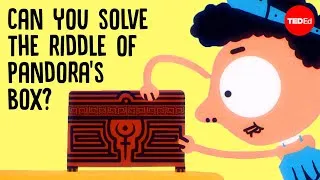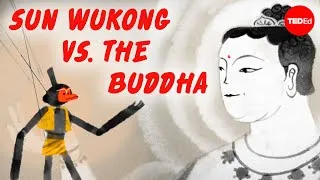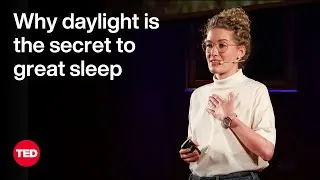How To Say Common English Expressions! | 💬 Small Talk PART 1
2,814,209 views ・ 2018-11-30
請雙擊下方英文字幕播放視頻。
00:00
Well hey there! I'm Emma from mmmEnglish!
0
20
3740
嘿!我是mmmEnglish的Emma
00:04
In this lesson, we'll go over the pronunciation of some
1
4020
3320
在這堂課中,我們將介紹幾個
00:07
really common English expressions that native speakers
2
7340
3560
英語母語者在首次會面時常用的語句之發音
00:10
use when they first meet someone.
3
10900
2820
英語母語者在首次會面時常用的語句之發音
00:23
Hello, how are you?
4
23380
2320
哈囉!你好嗎
00:25
I am well, thank you.
5
25700
2000
我很好,謝謝
00:27
Do you have plans today?
6
27740
1640
今天你有什麼計畫?
00:29
Would you like to get a coffee with me?
7
29380
2260
要不要跟我去喝杯咖啡?
00:32
I'm afraid I can't today.
8
32120
1780
我今天恐怖不行
00:33
Perhaps we could meet another time.
9
33900
1800
也許我們可以改天再約
00:36
That's not a problem.
10
36260
1300
那沒問題
00:37
I suggest you call me when you are available.
11
37560
2660
你有空的話打電話給我
00:40
Did you understand that whole conversation?
12
40940
2860
以上整段對話你都理解嗎
00:44
I think that you probably did
13
44280
3020
我猜你理解
00:47
and I also think that most native English speakers
14
47500
3720
但大部分你遇到的英語母語者實際上都不是這樣講話的
00:51
that you come across, they don't actually speak like that,
15
51220
2980
但大部分你遇到的英語母語者實際上都不是這樣講話的
00:54
right?
16
54440
820
對吧?
00:56
If only everyone spoke as clearly and with such
17
56040
3380
要是每個人講話都這麼清楚又發音標準就好了
00:59
good pronunciation.
18
59420
1380
要是每個人講話都這麼清楚又發音標準就好了
01:01
But let's take a look at a more realistic conversation,
19
61440
3600
但我們來看一下比較真實的對話
01:05
something a little similar to what you'd
20
65040
2480
比較像你在現實生活會聽到的
01:07
hear in the real world.
21
67520
1620
比較像你在現實生活會聽到的
01:09
Hey how you going?
22
69140
1760
如何?
01:10
Hey, not too bad.
23
70900
1560
還不賴
01:12
What are you up to today, do you want to grab a coffee?
24
72460
2440
你今天要幹嘛?要來杯咖啡嗎
01:16
I'd love to but I'm a bit busy today.
25
76440
2880
想啊,但今天忙
01:19
I've got a few things on later.
26
79400
1660
我等下要忙一些事
01:21
That's cool.
27
81060
620
01:21
How about you give me a call when you're free?
28
81680
2000
了解
那你有空打給我
01:24
So native English speakers have a habit of
29
84360
3520
英語母語者講話時習慣精簡並縮讀
01:28
reducing and contracting words when spoken
30
88080
3760
英語母語者講話時習慣精簡並縮讀
01:32
and we linked sounds together when we speak
31
92220
2780
我們講話時會連音
01:35
so it's really difficult to know where one word ends
32
95000
4260
所以想判斷句中某個單字何時開始或結束並不容易
01:39
and another word starts. It's especially common
33
99260
3340
所以想判斷句中某個單字何時開始或結束並不容易
尤其是當我們用很口語的表達方式時
01:42
when we use everyday expressions,
34
102600
2680
01:45
really common ones. We use them so much
35
105280
2860
太常用了以致於我們會在發音上偷懶
01:48
that we get lazy with our pronunciation.
36
108140
3640
太常用了以致於我們會在發音上偷懶
01:52
But that can make it really hard for English learners like
37
112180
2720
對各位在學英語的人而言可能會很難
01:54
you who are practising with conversation that's like this
38
114900
4320
尤其若平時對話練習的素材是像上方這段
01:59
but most of the time this is the actual situation.
39
119560
4320
不過通常下方這段的講話方式才是實際情況
02:04
So in this lesson I'm going to go over some common
40
124320
3260
所以這堂課我會帶到一些常用且自然的英語語句
02:07
and natural English expressions that you'll hear
41
127580
3340
所以這堂課我會帶到一些常用且自然的英語語句
02:10
and maybe even use yourself every single day.
42
130920
3720
可能你每天都聽得到,甚至你自己就有在用
02:14
By the time that we're done, you'll have a better idea
43
134940
2580
在完成這堂課時你就會更明白
02:17
what these expressions mean and how to respond
44
137520
3260
這些語句代表的意思以及該如何回應
02:21
but you'll also know how they're pronounced naturally
45
141020
3960
另外你也會學到英語母語者講這些語句時的自然發音
02:24
by native English speakers.
46
144980
2000
另外你也會學到英語母語者講這些語句時的自然發音
02:26
And it could be quite different to what you think
47
146980
3180
可能會跟你想的不太一樣
02:30
and make sure that you hang around until the
48
150160
2540
記得要堅持到影片結尾
02:32
end of the lesson because I've got a surprise for you
49
152700
3400
因為我準備了驚喜和額外的練習語句
02:36
and a few bonus expressions to practise with me.
50
156100
3500
因為我準備了驚喜和額外的練習語句
02:39
Let's start at the beginning. There are lots of different
51
159600
4560
讓我們從頭開始。英語中有許多不同的問候語
02:44
English greetings. Things that we say when we first
52
164160
2720
有些是初次見面時說的
02:46
meet someone.
53
166880
1020
有些是初次見面時說的
02:48
Good morning. How are you? All of those things.
54
168140
3340
早安。你好嗎?之類的
02:51
But let's focus on 'How's it going?'
55
171760
3940
現在我們針對How's it going?來探討
02:55
So this is kind of a strange one.
56
175700
2440
這句是有點怪
02:58
How's what going? I'm not going anywhere.
57
178460
4380
什麼要去哪?我沒有要去哪裡啊
03:03
'How's it going' is a really common greeting.
58
183820
3220
How's it going?是非常普遍的問候用語
03:07
It's an informal way of asking someone how they are.
59
187280
4700
這句是用來向人問好的非正式講法
03:12
So you might even say this to your boss,
60
192560
2540
若你與上司處得不錯
03:15
if you get on well together.
61
195100
2100
那你甚至可以對他用這句
03:17
But you probably wouldn't use it in formal situations
62
197200
3120
但在正式場合你大概不會想用這句
03:21
You would use it when you call your friend.
63
201240
3400
你打電話給跟你朋友時就會用這句
03:25
Say "Hey, how's it going?"
64
205020
1200
你會說,嘿!How's it going?
03:26
If you ran into your neighbour at the supermarket,
65
206220
2900
例如你在超市遇到你的鄰居
03:29
they might say to you "How's it going?"
66
209120
2360
他們可能會對你說How's it going?
03:31
It's informal it's friendly and it's used all the time.
67
211480
3980
這是非正式用語,語氣友善且經常使用
03:35
So let's take a closer look at the pronunciation.
68
215460
3400
那我們來琢磨一下這句的發音
03:43
So firstly, we don't pronounce the full verb 'is',
69
223580
4220
首先,我們不會發出動詞is完整的音
03:47
we combine 'how' and 'is' together
70
227800
2540
我們會將how與is組合起來縮讀
03:50
to make a contraction 'how's'.
71
230340
3140
我們會將how與is組合起來縮讀
03:53
It's really unnatural to say 'How is it going?'
72
233940
3280
在這情境下完整說出how is it going的每個字並不自然
03:57
in this context so make sure you use the contracted
73
237500
3380
所以你要像英語母語者那樣用縮讀來講
04:00
form like native English speakers would.
74
240880
2360
所以你要像英語母語者那樣用縮讀來講
04:06
So notice how the letter S is pronounced
75
246520
2300
注意到字母S變成是發/z/的濁音了嗎?
04:08
as the voiced /z/ sound, right?
76
248820
4260
注意到字母S變成是發/z/的濁音了嗎?
04:13
Next trick. When a word starting with a vowel
77
253400
3980
下一個撇步
當一個字以母音開頭,且它前一個字字尾是子音
04:17
follows a consonant sound, any consonant sound
78
257380
3340
04:20
but in this case /z/
79
260720
2000
譬如此例中的子音是/z/
04:22
then we can link those sounds together.
80
262900
2860
那我們就可以連音
04:26
Not
81
266060
860
不是how's it
04:29
Bit
82
269120
580
而是howsit
04:32
They should push together those sounds 'how's it'
83
272840
3700
要把這些音黏在一起
04:36
and finally you may not hear a native speaker
84
276540
2760
最後,英語母語者不見得會發going結尾那個g的音
04:39
pronounce the final G here in 'going'.
85
279300
4120
最後,英語母語者不見得會發going結尾那個g的音
04:43
So this expression is really casual you'll often just hear it
86
283660
3320
這句的語氣很隨意
所以你常會聽到人家講的時候發/n/而不是/ŋ/
04:46
pronounced with /n/ at the end instead of
87
286980
3240
04:51
So that's 'goin' instead of 'going'
88
291240
3860
goin'而非going
04:55
So let's put it all together.
89
295960
1680
現在整句一起唸
04:57
'How's it going?'
90
297960
1200
05:00
The intonation goes down at the end.
91
300080
2500
這句句尾的語調是下抑
05:05
You try it!
92
305940
1300
你試一下
05:12
Awesome! That sounds really good!
93
312160
2320
好極了!很好!
05:15
Alright let's try another now.
94
315080
2340
好,我們來試看看另一句
05:17
When this happens all the time, a time when you're
95
317420
3240
這情況時常發生
當別人介紹你給對方認識時
05:20
getting introduced to someone new.
96
320660
2180
05:22
Someone that you've never actually met before
97
322960
2640
你與對方從未謀面
05:25
but you know a lot of information about them.
98
325920
3180
然而你卻知道許多關於對方的資訊
05:29
So maybe it's the husband of your colleague
99
329460
3540
也許是你同事的先生
05:33
and your colleague talks about her husband all the time.
100
333000
4100
且你同事時常提起她先生
05:37
You don't know them, you've never met them before
101
337100
3480
你不認識對方,你與對方之前從未見過面
05:40
but you know of them. You know some information
102
340580
3740
但你聽說過對方
你知道對方的一些事情
05:44
about them.
103
344320
880
05:45
Well then when you meet them it's really common to say
104
345400
3340
那麼當你與對方碰面時,一般很常說
05:49
"I've heard a lot about you"
105
349680
1340
(久仰大名)
05:52
It's a really nice way of saying my friend tells me
106
352060
3140
這個方式很好
用來表示你常聽朋友提起對方
05:55
about you all the time.
107
355200
1280
05:56
I feel like we know each other already.
108
356480
2380
我覺得我們好像早就認識了
05:58
Really friendly and it's so common
109
358860
3360
這句很友好且常用
06:02
and it's a very polite response.
110
362220
2000
也是很有禮貌的回應
06:04
I've heard a lot about you.
111
364560
1540
06:06
So for example
112
366300
1580
舉個例子
06:08
"Hey this is my friend from uni that I always talk about."
113
368400
3020
嘿,這就是我常提到的那位大學同學
06:12
Ah, yeah I've heard a lot about you!
114
372380
2800
啊,是的,久仰大名
06:15
So nice to meet you.
115
375180
1500
很高興見到你
06:17
Let's take a closer look at the pronunciation.
116
377000
3160
我們來琢磨一下這句的發音
06:20
'have' at the start of the sentence.
117
380520
2020
have在句子開頭
06:22
It usually joins together with the subject
118
382540
2920
通常與主詞連貫在一起
06:25
in spoken English so it becomes a contraction.
119
385460
2920
所以在英語口說中就縮讀
06:31
for example.
120
391500
1120
06:32
Not 'I have' but 'I've'.
121
392860
2120
不說I have,而是說I've
06:35
Make sure you have that consonant sound
122
395200
2240
注意到子音還是要正確發出聲來
06:37
coming out right it's one that you sometimes forget
123
397440
3440
結尾的子音你有時候會忘記
06:40
isn't it? On the end.
124
400880
1380
結尾的子音你有時候會忘記
06:46
Now the H of 'heard',
125
406280
2920
此處heard的h發音常常是輕省的
06:49
it often gets a little lost here.
126
409620
2060
此處heard的h發音常常是輕省的
06:51
It's like the sound from the end of 'I've'
127
411680
4200
I've結尾的/v/直接連到heard的母音
06:55
links directly to the vowel in 'heard'
128
415880
3960
I've結尾的/v/直接連到heard的母音
07:09
Now these words all pull together, don't they?
129
429660
2700
這幾個字都緊靠在一起了,對不對?
07:13
You can hear those sounds coming together
130
433020
1860
你可以聽到這些音一起發出來
07:14
and in fact we hear the flap T there as well.
131
434880
3800
實際上我們也聽到彈音T
07:19
Well in my Australian accent you do and it's also
132
439000
3640
在我的澳洲腔是如此
在美國腔也經常是如此
07:22
really common to hear that in American accents as well.
133
442640
3860
07:26
But the T almost sounds like a /d/ sound
134
446780
5520
這裡的T發音幾乎就像是/d/
07:32
and that happens often in English when the letter T
135
452820
4040
就像這邊這個例子一樣,英語中
07:36
is between two vowel sounds like here.
136
456860
3900
這個音常出現在當T夾在兩個母音之間時
07:41
Now even though the letter T is at the end of the word
137
461120
4240
即使這邊的T是位於lot的結尾
07:45
'lot' it's followed by a vowel sound and in spoken English
138
465360
4980
但緊接著的是個母音,且在英語口說中,
07:50
these words would pull together
139
470340
2240
這幾個字黏在一起
07:53
so you get a T between two vowel sounds.
140
473160
4600
於是就產生一個夾在兩個母音之間的T
07:58
It makes /d/ sound.
141
478220
3400
發音就會像/d/
08:07
With that T at the end, you'll hear a stop T.
142
487340
3800
你會聽到這個在結尾的T發塞音
08:13
So I don't fully release the air after that T
143
493640
3360
我並沒有完全釋放氣流來發出完整的T的音
08:17
to make a complete T sound. Not
144
497000
2680
我並沒有完全釋放氣流來發出完整的T的音
不說about,而是幾乎像在說abou
08:21
but
145
501480
500
08:24
Don't release the air.
146
504040
1520
別釋出氣流
08:25
Let's try it all together now.
147
505560
2040
現在整句一起唸
08:33
Your turn.
148
513480
1200
輪到你了
08:37
I've heard a lot about you.
149
517220
1760
08:39
Now if you said that to someone, it's really common
150
519780
3060
若你向對方這麼說
08:42
for them to say back to you
151
522840
2000
一個普遍的反應會是
08:45
all good things I hope,
152
525080
1620
(希望都是好事)
08:47
like "I hope that everything you heard about me was
153
527320
3060
希望你聽說的關於我的都是正面的好事
08:50
positive".
154
530380
1240
希望你聽說的關於我的都是正面的好事
08:51
So be ready for that. You might even decide to say "Yeah
155
531620
4560
所以做好準備,你甚至會回應說:
對!當然都是好事
08:56
Of course all good things!
156
536180
1880
08:58
I've heard all good things about you!"
157
538260
2300
我聽說許多關於你的好事
09:01
All right so we've broken the ice a little there but now
158
541560
4580
好的,現在算已經破冰了
但談話方向如何發展?
09:06
where do we go? What next?
159
546140
2200
09:13
What are you up to? Up?
160
553680
2160
什麼上面?
09:16
What are you up to?
161
556620
1480
09:19
If you've ever been confused by this expression,
162
559140
3440
如果你曾對這句感到困惑
09:22
you're not alone,
163
562580
1020
你並不孤單
09:23
it's even confusing for me when I think about it.
164
563600
2320
當我認真去想它時,連我都感到困惑
09:26
'What are you up to' is another way of saying
165
566760
2640
它是「你在做什麼?」的另一種講法
它是「你在做什麼?」的另一種講法
09:29
what are you doing now?
166
569400
2000
09:31
If you're curious about what your friend is doing,
167
571660
2940
若你好奇你朋友在做什麼
09:34
you could say "Hey, what are you up to?"
168
574600
2000
你可以說What are you up to?
09:37
Or you can use it with another time expression
169
577200
3020
也可以加上時間點以詢問關於未來的計畫
09:40
to ask about future plans.
170
580220
2580
也可以加上時間點以詢問關於未來的計畫
09:45
Do you have any plans tonight?
171
585420
1980
你今晚有什麼計畫嗎?
09:48
What are you up to on the weekend?
172
588300
1760
09:50
Do you have any plans on the weekend?
173
590360
2080
週末有什麼計畫嗎?
09:52
So this expression has a couple meanings.
174
592440
3100
於是這句的意思就可以有變化
09:55
So when we start looking a little closer at the
175
595540
3080
若我們仔細來檢視這句的發音
09:58
pronunciation, it gets really interesting.
176
598620
2760
會很有意思
10:06
Now remember that flap T from before .
177
606380
3480
記得剛才提到的彈音T
10:10
Here it is again.
178
610400
1300
它又出現了
10:12
In spoken English, 'what' and 'are' come together.
179
612100
4340
英語口說中,what與are連貫在一起出現
10:16
The two vowel sounds make the the T sound
180
616440
4280
這兩個母音使T的發音轉為/d/
10:20
turn into a D.
181
620720
2580
這兩個母音使T的發音轉為/d/
10:23
The word R is unstressed here so it reduces right down
182
623560
4680
are的發音則是弱化,輕到變成中央母音(schwa)
10:28
to become the schwa sound.
183
628240
2380
are的發音則是弱化,輕到變成中央母音(schwa)
10:35
And 'you' also reduces down as well.
184
635640
2500
you的發音也弱化
10:38
We hear the schwa.
185
638140
1480
於是我們又聽到了中央母音
10:46
So 'what are you' becomes
186
646320
2880
what are you講很順變成
10:51
And you'll hear that question all the time
187
651320
3140
你會在英語口語中時常聽到這個問句
10:54
in spoken English.
188
654460
1880
你會在英語口語中時常聽到這個問句
10:58
It's kind of confusing, isn't it? But understanding
189
658600
2920
有點令人困惑,是不是?
但瞭解這些字如何發音,
11:01
how these words are spoken will help you to understand
190
661520
3660
有助於理解更多英語母語者
11:05
more native English speakers.
191
665180
1880
11:07
But let's get back to this question.
192
667100
2020
我們回到這個問句來
11:12
So the unstressed schwa and the
193
672840
3120
輕讀的這個中央母音與up裡的母音/ʌ/很相近
11:16
vowel sound that you hear in 'up' are very, very similar.
194
676780
4500
輕讀的這個中央母音與up裡的母音/ʌ/很相近
11:21
So they actually pull together.
195
681280
2140
因此實際上它們連貫在一起
11:30
So you really just hear 'you' as the
196
690180
4720
所以其實you這個字你只會聽到/jə/的音
所以其實you這個字你只會聽到/jə/的音
11:35
sound.
197
695460
800
11:40
Crazy huh?
198
700760
960
見鬼啦~
11:41
And you wonder how sometimes it's really difficult
199
701720
3360
你一定覺得有時候真的很難理解英語母語者
11:45
to understand native English speakers, right?
200
705080
2980
你一定覺得有時候真的很難理解英語母語者
11:48
You have a go.
201
708520
1260
你試試
11:55
Now it's important to note that there are a lot of
202
715600
2620
值得注意的是
各地腔調之間的差異可能很大
11:58
different variations between accents
203
718220
3080
12:01
so you may hear
204
721300
1920
所以你可能會聽到
12:04
where the ch consonant sound is used.
205
724860
3960
發的是ch子音
12:11
Try it.
206
731540
820
試試看
12:16
So this is such a common expression in English.
207
736820
3340
這是英語中很普遍的用語
12:20
If you hear a whole lot of mumbling at the
208
740160
2140
若你在與英語母語者的會話開頭聽到一堆這種鬼話
12:22
start of a conversation with a native English speaker,
209
742300
3360
若你與英語母語者在對話開頭聽到一堆這種鬼話
12:25
don't freeze because they are probably just using
210
745660
3640
別愣住,因為他們大概只是在講這幾句普遍用語
12:29
these really common expressions
211
749300
1880
別愣住,因為他們大概只是在講這幾句普遍用語
12:31
and being lazy about it.
212
751180
2000
但是懶所以講話含糊
12:33
So for you, understanding how the natural expression is
213
753520
4120
你要知道,自然的口語用法與書面文字哪裡不同
12:37
different from the written words
214
757640
1680
你要知道,自然的口語用法與書面文字哪裡不同
12:39
is really, really important.
215
759320
2000
了解這點極為重要
12:42
Now to answer this question,
216
762220
2800
要回答這個問題
12:45
you would simply explain what you are doing
217
765340
2680
你只要告知你當下在做什麼
12:48
at that moment or your future plans
218
768020
2860
或是你未來的計畫,若問句中有提到某個時間點的話
12:50
if there was a time reference.
219
770880
1940
或是你未來的計畫,若問句中有提到某個時間點的話
12:53
But if you're not doing anything particularly interesting
220
773240
4220
不過如果你沒有要做什麼特別的事
12:57
or you don't really have anything planned
221
777460
3040
或你也沒什麼計畫
13:00
then how do you answer this question?
222
780760
2380
那你怎麼回答這個問題呢?
13:03
You say..
223
783280
820
你就說...
13:08
Now it's hard to believe that even these quick responses
224
788680
4540
很難相信甚至連這些簡答都還能再精簡
13:13
actually reduce down.
225
793220
2040
很難相信甚至連這些簡答都還能再精簡
13:15
So we don't hear the T in 'not'
226
795440
3860
這個not結尾的T並沒有發出聲音
13:25
Again that -ng when spoken quickly at the end of a word
227
805320
5060
還有這個結尾的ng講很快時也一樣
13:30
it sounds more like just
228
810380
2100
發音更近於nothin'
13:34
instead of
229
814500
840
而不是發nothing
13:39
You might also say
230
819460
1880
你也可以說...
13:44
or
231
824220
500
13:46
So this is the unstressed form of 'just' and it sounds like
232
826900
5700
這是just的弱讀,聽起來像jus
13:55
So this also helps to explain that the activity that you're
233
835020
3020
這也解釋了你當下正在從事的活動
13:58
doing at that moment, it's not really important
234
838040
3000
其實並沒有很重要
14:01
and notice as well that I've completely dropped
235
841880
2940
注意到我把代名詞與助動詞都完全省略掉了
14:04
the pronoun and the auxiliary verb.
236
844820
2420
注意到我把代名詞與助動詞都完全省略掉了
14:07
I didn't say "I am just finishing this email"
237
847340
4120
我並沒說I am just finishing this email
14:11
I could but often native speakers will drop this
238
851680
3320
這麼說是沒錯,但若非必要,
母語人士常會省略掉那部分
14:15
information if it's unnecessary.
239
855000
2720
14:18
So the question that was directed at me
240
858240
3820
我被問到的問題是
14:22
"What am i up to?"
241
862060
1960
What am I up to?
14:24
I don't really need to clarify that in my answer.
242
864020
3160
我沒必要在我的回答中闡明
14:27
I'm talking about myself right?
243
867180
2540
我說的是我自己吧?
14:29
So I dropped it, it's not that important.
244
869720
2880
所以我就省略掉,不是很重要
14:34
So tell me what did you think of this lesson?
245
874700
2880
告訴我,你覺得這堂課如何?
14:37
I hope that it was useful for you.
246
877580
2000
希望對你有幫助
14:40
In a minute,
247
880100
940
等一下
14:41
I'm going to take you on a bit of an adventure
248
881040
2940
我將帶你去我工作室外進行冒險活動
14:44
outside of my studio to practise some more
249
884020
3900
我將帶你去我工作室外進行冒險活動
來練習常用語句,一些我超常講的用語
14:47
common expressions - ones that I use all the time.
250
887920
3640
14:51
But before I do, I want you to add some common
251
891960
3740
但在那之前
請你加幾個英語日常用語
14:55
everyday English expressions that you want me
252
895700
2780
是你要我在將來的課程中涵蓋的
14:58
to include in a lesson just like this in the future.
253
898480
3120
15:01
If there is any that you want to understand more then
254
901840
2940
若有你想進一步了解的
15:04
add them into the comments below
255
904780
1900
那就寫在下方留言好讓我製作課程
15:06
so that I can make a lesson.
256
906700
1480
那就寫在下方留言好讓我製作課程
15:24
Hi!
257
924660
1480
嗨!
15:26
I'm ready to practise!
258
926220
1760
我已經準備好練習了
15:28
Okay! Hey I've got an idea. Why don't we practise
259
928260
3320
好的!嘿,我有個主意
我們何不去外面練習?我以前從沒在外面拍片過
15:31
outside? I've never really filmed outside before but
260
931580
3580
15:35
it's probably going to be really windy, bit of traffic,
261
935160
3460
可能風會很強,車有點多
15:38
but I've been meaning to do it for a while.
262
938620
1880
但我想這麼做已經有一陣子了
15:40
Do you want to try it?
263
940600
1180
你想嘗試嗎?
15:41
Let's just give it a go, yeah?
264
941880
1920
我們就試一試吧,好嗎?
15:43
Sure!
265
943920
620
當然!
15:45
Alright so, 'give it a go' is something that I use
266
945000
2220
Give it a go是我超常使用的語句
15:47
all the time.
267
947220
1220
Give it a go是我超常使用的語句
15:49
It means to try something new, right?
268
949520
2440
表示嘗試新事物
15:51
Like right now, I've never filmed outside before
269
951960
3200
就像此刻。我之前從未在外面拍片過
15:55
and I'm not really sure how it's going to turn out but
270
955280
3160
我不太確定事情會變怎樣
15:58
I want to just see how it goes anyway.
271
958440
2800
但我還是想要看看結果會是如何
16:01
I would say all the time give it a go.
272
961260
3200
我總是會說give it a go
16:04
So depending on who you talk to,
273
964460
2120
端看你是在跟誰講話
16:06
you might hear people say "I'll give it a shot"
274
966580
3400
你可能會聽到人家說
16:10
or "I'll give it a try" or "I'll give it a crack"
275
970140
3560
16:13
All of these expressions that have really
276
973700
2280
之類意思相近的語句
16:15
similar meanings. For me I always say "give it a go"
277
975980
4620
若是我的話,我都是說give it a go
16:20
It's really easy to just roll off the tongue. I'm going to
278
980600
2760
脫口就說出來了,很順
我來說明在講這些字時如何自然地連貫在一起
16:23
talk about how all of these words kind of push together
279
983360
4380
16:27
when they're spoken naturally because
280
987740
2360
我來說明在講這些字時如何自然地連貫在一起
16:30
you will never hear someone say "let's give it a go"
281
990100
4040
你永遠不會聽到有人說let's、give、it、a、go
16:34
but instead "give it a go"
282
994520
2440
而是會聽到give it a go
16:37
and so what's happening is all of the words that end
283
997720
3520
事情是這樣的,這些結尾是子音的字
16:41
in the consonant sounds, are actually linking to the ones
284
1001240
3760
其實全都連接到下個字的母音
16:45
that follow that are vowel sounds.
285
1005000
2660
其實全都連接到下個字的母音
16:47
So instead of
286
1007660
1420
所以不講give、it
而是講give it
16:53
and notice how it's unstressed so it reduces down
287
1013300
4180
注意到it弱讀,弱化為中央母音
16:57
to the schwa sound.
288
1017480
1860
注意到it弱讀,弱化為中央母音
16:59
And also that T is a stop T which means that I'm not
289
1019980
4380
還有這邊這個T是塞音
但並不完整地發音,不釋放氣流
17:04
fully pronouncing it, I'm not letting the air go afterwards.
290
1024360
3540
17:07
I'm not saying
291
1027900
740
我不說
17:10
but
292
1030240
500
而說
17:13
So it's stopping, I'm not releasing the air.
293
1033220
2360
氣流閉塞在那,我不釋放
17:18
So that article,
294
1038220
1320
而冠詞a發音弱化為中央母音
17:20
its a schwa and it reduces right down.
295
1040060
2940
而冠詞a發音弱化為中央母音
17:25
You might even hear that T, that flap T
296
1045600
2900
你甚至會聽到這個T發彈音
17:28
sounding more like a D there because naturally in my
297
1048500
3040
更接近D的發音
因為依我的腔調和我自然的發音
17:31
pronunciation, with my accent,
298
1051580
2260
17:33
it'll reduce to that flap T sound.
299
1053840
2720
它會弱化成彈音T
17:38
instead of
300
1058820
660
而非
那你何不give it a go?試試吧
17:43
So why don't you give it a go? Try it.
301
1063080
2380
17:47
Let's give it a go.
302
1067100
1200
17:49
Right now, let's go.
303
1069000
1360
我們立刻出發
17:50
Hang on a second I've got to get my phone.
304
1070700
2820
稍等一下,我得拿我手機
17:54
Okay now let's go give it a go.
305
1074420
1920
好了,現在我們去give it a go吧
稍等一下,我要接這通。嗨,媽媽
18:11
I'm going to take this. Hi mum.
306
1091000
3120
18:15
Hey. Can I give you a call back?
307
1095100
2660
嘿,我可以給妳回電嗎?
18:18
I'm a bit busy. Yep.
308
1098720
1860
我有點忙
18:22
Alright I'll talk to you soon.
309
1102480
1540
好,我很快會聯繫妳
18:24
Hang on a sec, I'm not coming to dinner tonight.
310
1104500
3540
稍等一下,我今晚不過去吃晚餐
18:28
I'll come over tomorrow. Okay. See you.
311
1108040
3940
我明天再過去。好的,再見
18:32
Alright so that, I said "hang on a sec"
312
1112440
2840
好,我說了Hang on a sec
18:35
and I say that all the time.
313
1115280
2000
我超常講這句
18:39
It's a really casual informal way of saying
314
1119740
3620
這是一種很隨意且非正式的講法
18:43
just wait a moment. It's a little bit more, you know,
315
1123360
2380
用來表示稍候片刻。這是有點...就是...
18:45
because we're friends and we're just hanging out,
316
1125740
2040
因為我們是朋友,我們只是閒逛
18:47
it's much easier, you know and much more relaxed
317
1127780
3540
用這句容易多了,而且也比較放鬆
18:51
to use that expression so 'hang on a sec'
318
1131320
4040
那麼,hang on a sec
18:55
What's a sec?
319
1135380
1280
什麼是sec?
18:56
Well a 'sec', is it's a short version of the word 'second'
320
1136660
4100
sec是second這個字的簡化
19:00
so we're going to focus on the first three words
321
1140760
2480
我想要著重在前三個字
19:07
So they kind of all come together, don't they?
322
1147700
2440
它們有點全都湊在一起,對吧?
19:10
When I say them quickly.
323
1150140
1080
我講得很快的時候
19:14
And that's because the consonant sounds at the end
324
1154100
2960
那是因為這幾個字字尾的子音
19:17
of these words links straight to the vowel sounds
325
1157060
2720
直接連到緊接其後的母音
19:19
that follow.
326
1159780
900
直接連到緊接其後的母音
19:27
So the 'a', the article links straight on behind.
327
1167740
4440
連接著就在後面的冠詞a
19:32
It's just a schwa, it's unstressed.
328
1172180
2120
它是個中央母音,弱讀
19:37
It's really soft and flat.
329
1177960
1720
很柔和平順
19:41
Try it with me.
330
1181100
1140
跟我一起試試看
19:51
Nice one!
331
1191160
1140
很好!
19:53
Let's try another!
332
1193400
1080
我們來試試另一句!
20:01
With those clouds, we might be running out of time.
333
1201900
2640
從那雲層來看,我們可能快沒時間了
20:04
We've got time for one more but let's do
334
1204880
2760
我們還有時間再學一句,那就學...
20:07
'running out of time
335
1207640
2200
running out of time(快沒時間了)
20:11
because we are, look at these clouds.
336
1211880
1920
此刻便是如此,你看看這雲層
20:16
It's a really common expression, it's an idiom
337
1216740
2680
這句很普遍,你可能已經學過這個慣用語
20:19
that you might already know but we're going to focus on
338
1219420
2640
但我們現在要在發音方面深入探討
20:22
the pronunciation so first up we've got a contraction.
339
1222060
3580
首先碰到的是縮讀
20:25
'We are', the auxiliary verb 'are'
340
1225640
2980
We are,助動詞are與主詞合在一起,we're
20:28
comes together with the subject 'we're'
341
1228620
3240
We are,助動詞are與主詞合在一起,we're
20:35
So instead of saying 'we are' - it sounds quite sort of
342
1235660
3360
與其很正式地講we are、聽起來相當生硬
20:39
stiff and formal
343
1239020
2120
與其很正式地講we are、聽起來相當生硬
20:41
but you know if you're speaking more naturally
344
1241140
2600
你其實可以像英語母語者那樣講得自然點
20:43
just like a native English speaker would, you would
345
1243740
2240
你其實可以像英語母語者那樣講得自然點
20:45
probably just contract those two things together.
346
1245980
2360
大可將這兩個字縮讀即可
然後在running的字尾
20:52
And then at the end of 'running' usually what happens
347
1252040
3400
通常英語母語者都偷懶
20:55
with native English speakers is instead of pronouncing that
348
1255440
3120
不發出結尾的那個/ŋ/
20:59
sound at the end, they get really lazy
349
1259240
2440
21:01
and they'll just pronounce the
350
1261680
1420
他們只會發/n/
21:08
Then we've got 'out of time'.
351
1268980
2760
接著我們來看out of time
21:11
Now if they're pronounced really clearly you can hear
352
1271740
2640
若每個字都很清晰地發音,你應該會聽到所有的字
21:14
all of those words but instead
353
1274380
2500
但相反地
21:16
when spoken naturally you'll hear
354
1276880
2040
講話自然的時候,你會聽到
21:21
'out of' becomes
355
1281160
2180
out of變成outta
21:24
And thats, you'll see the flap T there. You'll see
356
1284780
3240
這邊你會聽到彈音T
21:28
that will reduce, that will become the /d/ sound.
357
1288020
4100
你會發現發音縮減,變成了像是/d/
21:34
That's my accent anyway. The Australian accent,
358
1294300
2960
我的腔調就是這樣
澳洲腔會有彈音T,這點跟美國腔一樣
21:37
will use the flap T, same with the American one,
359
1297380
3040
21:40
you might hear people say
360
1300420
1720
你可能會聽到人們說
21:43
but most commonly
361
1303440
1400
但最普遍的是
21:47
And 'time' is a stressed word there,
362
1307100
1820
而time在此是個重讀字
21:48
so we hear it really clearly.
363
1308920
1880
所以我們可以清楚地聽到它
21:52
or
364
1312460
500
或
21:55
Why don't you try it?
365
1315860
1340
你何不試試?
22:02
Well I hope you enjoyed that lesson. It's been fun
366
1322340
2400
希望你喜歡這節課
22:04
taking you outside and I think we're going to keep going
367
1324740
3360
帶你到外面滿有趣的,我想我們會繼續這麼做
22:08
with this we're going to keep giving it a go.
368
1328100
2300
我們將繼續giving it a go
22:10
If you enjoyed this lesson, then make sure you
369
1330400
2400
如果你喜歡這堂課
22:12
subscribe to the channel by clicking that
370
1332800
2520
記得要按這邊的按鈕訂閱頻道
22:15
subscribe button over there and if you're ready to
371
1335320
2840
如果你準備好跟我一起學習新課程
22:18
check out some new lessons with me,
372
1338160
1860
如果你準備好跟我一起學習新課程
例如關於發音或英語自然用語的課程
22:20
some pronunciation lessons or lessons about
373
1340020
2680
22:22
natural English expression,
374
1342700
1840
例如關於發音或英語自然用語的課程
22:24
then check out these ones right here
375
1344540
2300
那就點閱這邊的課程
22:26
and I'll see you in the next lesson!
376
1346860
3260
下節課再見
New videos
關於本網站
本網站將向您介紹對學習英語有用的 YouTube 視頻。 您將看到來自世界各地的一流教師教授的英語課程。 雙擊每個視頻頁面上顯示的英文字幕,從那裡播放視頻。 字幕與視頻播放同步滾動。 如果您有任何意見或要求,請使用此聯繫表與我們聯繫。







